FAQ
What makes your pumps and fire defense products better than others?
Unlike other options that are either overpriced or lack the power and quality needed for real fire defense, our pumps are specifically designed to protect homes from wildfire. We’ve taken the same equipment used by professionals and made it affordable, reliable, and just as powerful. Because we’re on a mission to equip as many homeowners as possible, we keep our prices low with a small profit margin—ensuring more people get the protection they need.
Aren’t firefighters supposed to handle wildfires?
City fire departments are built to handle one, two, maybe three fires at a time—but not the massive, fast-moving wildfires we see today. The water systems and firefighting resources simply weren’t designed to handle fires of this scale, especially with the impact of climate change making them more extreme. In the Los Angeles wildfires, entire neighborhoods were left to fend for themselves as fire crews were overwhelmed. If you wait for help, it may not come in time—that’s why you need to be prepared.
Why should I worry? What happened in Los Angeles won’t ever happen to me.
Climate change is making fires bigger, faster, and more unpredictable. Fires are now burning in places that were never considered high risk before. Embers can travel miles ahead of the flames, igniting homes that aren’t anywhere near the fire line.
How does this help California as a whole?
The more homeowners who take action, the less destruction wildfires cause. Every fire that gets stopped early reduces the spread, saves resources, and protects communities.
Is the pump hard to set up?
No! Our systems are designed for homeowners—they come with easy instructions, and we provide setup support if needed.
Is this really a proven way to protect homes?
Yes! Firefighters and homeowners alike have used water pumps to create fire barriers that save homes. The homes that stood after the Palisades Fire were protected with water pumps.
Why may fire retardant foam or gel be useful?
Fire-retardant gel and foam add an extra layer of defense, to prevent fire from igniting; even after the water dries.
How does my purchase support fire defense efforts?
Every purchase helps fund fire defense research, tree planting, and wildlife rescue. We take a percentage of net profits and reinvest it into solutions that reduce wildfire damage, restore lost forests, and help animals displaced by fire. When you buy from us, you’re not just protecting your home—you’re fighting for a stronger, safer future for California.
Is the chlorine in my pool bad for the ecosystem?
Pool chlorine has minimal environmental impact when used for emergency fire suppression, especially compared to the massive environmental damage caused by uncontrolled fires.
Why chlorine isn't a major concern:
Highly diluted:
Pool chlorine (2-4 ppm) becomes even more diluted when sprayed over large areas
Evaporates quickly:
Chlorine dissipates rapidly in outdoor air and sunlight
Temporary use:
Fire suppression is short-term emergency application, not chronic exposure
Lower concentration:
Much less concentrated than what people swim in daily
Environmental perspective:
During wildfires, environmental agencies focus on major threats like toxic smoke from burning homes, plastic, and chemicals - not diluted pool water. Fire retardant drops used by aircraft contain much harsher chemicals than pool chlorine.
The bigger picture:
Preventing fires with pool water creates far less environmental damage than letting structures burn and fires spread. When homes burn, they release toxic smoke, contaminate soil and groundwater, and destroy ecosystems for years.
Regulatory reality:
Environmental agencies prioritize large-scale pollution and sensitive ecosystems. Temporary use of diluted pool water for property protection during emergencies gets very different treatment than industrial discharge or chronic contamination.
Saving your home and preventing fire spread with pool water is environmentally responsible compared to the massive ecological damage caused by uncontrolled wildfires.
I'm worried I will get in trouble or in the way of the fire departments?
Great question - fire departments absolutely want you to evacuate when ordered, and you should always follow evacuation instructions. That's exactly why our systems are designed to work automatically while you're safely away from your property.
How it works with fire department operations:
Before evacuation:
Use your system to wet down property and create defensive perimeters while it's still safe to do so
During evacuation:
Your automated system continues protecting your property after you've left safely
Fire department coordination:
We notify local fire departments that you have professional-grade equipment they can utilize if they reach your property
No interference:
You're safely evacuated - the system works independently
The real problem
is people staying too long with garden hoses trying to save their homes. Our systems give you professional-grade capability to prepare your property quickly and safely, then evacuate with peace of mind knowing protection continues.
Insurance companies and fire departments support :
property owners having professional fire suppression equipment because it reduces the number of structures they need to save and lowers overall fire damage.
You follow evacuation orders, and your property gets professional-level protection even when you can't be there. It's the responsible approach to fire defense."
This frames you as the SAFE, cooperative choice rather than the problematic one.
